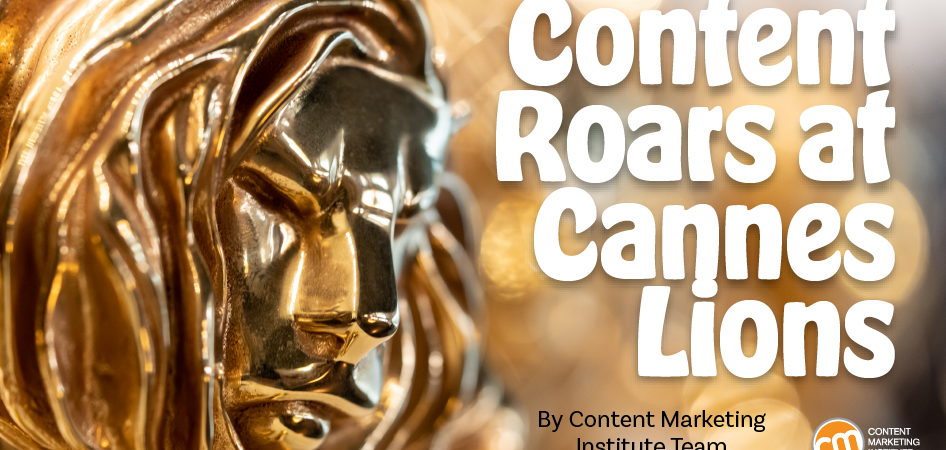
We didn’t get to the south of France this week, but we’ve been talking about Cannes Lions.
At the International Festival of Creativity, the most interesting thing happened. The early big prize winners weren’t great ads as much as they were classic content marketing.
In his most recent book and in his keynote presentation at Content Marketing World 2023, Robert Rose asked if marketing was simply becoming content marketing. Well, this year’s Cannes Lions Awards may indicate a tipping point.
What does Robert, CMI’s chief strategy advisor, think? Watch the video or read on.
Lesson from Cannes Lions
As a riffraff marketer, I never get invited to things like the Cannes Lions International Festival of Creativity. But marketing professionals, content creators, and a who’s who of creative folks flocked to the south of France and had a look at the more than 25,000 entries.
Seventy years ago, ad agency executives jealous of the Cannes Film Festival started the creativity festival. They wanted their work recognized, and one need only look at the south of France to realize it was never going to be the Florida International Festival of Creativity.
The festival has always been known for a celebration of pure advertising, specifically B2C advertising created by big companies that can afford big entry fees.
Fun fact: In 2013, McCann Australia made history, winning the most Grand Prix awards (five) for any entry. It won for what would today be called content marketing — the Metro Trains’ Dumb Ways To Die campaign.
This year’s early winners struck me.
Storytelling for the win
Siemens Healthineers won the Grand Prix Pharma for its Magnetic Stories campaign. The maker of MRI machines partnered with children’s authors to tell audio stories paired with the sound patterns of MRI scans, which can be loud and disconcerting for kids.
For example, a child can listen through headphones to a story called “The Flying Train” while getting a cranial bone scan. The chugging sound of the MRI fits in nicely with the narrative.
Is it an ad? No.
Is it a brand using content to create a more engaging, inspiring, and satisfying customer experience? Absolutely.
Chalk this winner up to the practice of content marketing.
The Health and Wellness Grand Prix went to Dramamine’s mini documentary about — of all things – barf bags. Agency FCB in Chicago created this 12-minute film exploring collectors of airplane barf bags. Yes, people collect everything you can imagine. They discuss the decline in the need for air sickness bags and the brand, with tongue firmly planted in cheek, takes credit for the drop.
Is it an ad? Not really.
It’s a wonderful piece of creative content that transforms what would be a not-very-compelling topic into something fun and engaging.
Finally, Pedigree won a Grand Prix Outdoor. Using dynamic technology for outdoor advertising, the campaign used an inventory of digital ads featuring real, adoptable animals. When a pet was adopted, its ad was removed from the inventory.
Is it an ad? Of course. But it’s just a wonderful piece of content — valuable to the audience even without the Pedigree brand behind it. It’s likely to create brand affinity because it doesn’t actively sell something.
Call the Pedigree campaign the spirit of content marketing coming through a traditional ad medium.
Content at the center of good advertising and marketing
The spirit of delivering value, trust, and extraordinary content seems to be the order of the week at Cannes. Is it part of a larger trend to evolve how people define brand advertising? Is it pushback to the programmatic, buy-now commodity of performance algorithm marketing?
I hope so.
Cannes presents a ton of lessons, even for those of us who don’t hobnob with the celebrities in the south of France.
Maybe when we get together in San Diego later this year at Content Marketing World, we can pop the champagne and talk about how your differentiated marketing has become just great content.
HANDPICKED RELATED CONTENT:
Cover image by Joseph Kalinowski/Content Marketing Institute




